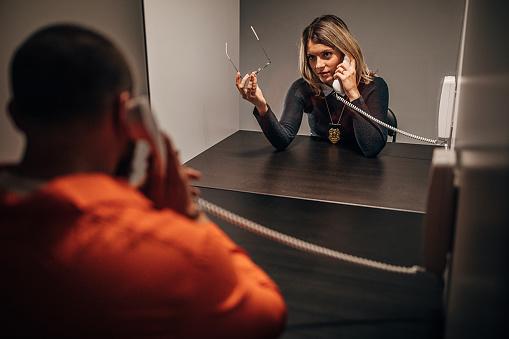Probation and technical violations are similar in that they both transpire because of some offense that occurs while someone is on probation.
What Is Probation?

According to the Michigan government, probation has been the primary form of supervision for anyone convicted of a felony in Michigan since 1913. The purpose of probation is to provide an alternative to jail time for those convicted of a criminal offense. Additionally, probation may be imposed for misdemeanors that are not resolved through fines. Generally, individuals may be eligible for probation unless they committed one of the following crimes:
- Murder
- Treason
- Armed Robbery
- Criminal Sexual Conduct
- Controlled-Substance Offenses (some but not all)
The Field Operations Administration is responsible for Michigan state parole and probation supervision. The Field Operations Administration’s primary role in probation supervision is to monitor the individual’s behavior and ensure that they are complying with the probation order and statutory requirements.
Statutory Requirements
The probation order provides mandatory and permissive terms and conditions that individuals must follow during their probation. The terms and conditions that are laid out in the probation order may differ depending on the judge and the crime committed; however, the statutory requirements will remain the same for all people on probation. Under Michigan law, all individuals on probation must follow the following mandatory conditions:
- Shall not violate any criminal law in Michigan, the United States, or another state
- Shall not violate any ordinance in Michigan or another state
- Shall not leave Michigan without consent of the court
- Must report to the assigned probation officer either in person or in writing, monthly or as often as the probation officer requires
- Must pay supervision fees, restitution, probation fees, and minimum state costs
Probation Order
A probation order provides the mandatory and permissive terms and conditions of an individual’s probation. This means that if they do not follow the terms and conditions provided in the probation order, they may be found to have violated their probation and have their probation revoked, likely resulting in jail time.
To determine whether an individual should be eligible for probation, the judge will look at the defendant’s criminal history and whether they have been placed on probation in the past. Additionally, the court will evaluate whether the defendant is a danger to society or a flight risk because they do not want to allow someone who is likely to commit another criminal act or flee the state to be out on probation. Typically, the court looks at the totality of the circumstances to determine if someone should be put on probation or get jail time.
A probation order may require the individual to do the following while they are on probation; however, these may depend on the judge and the circumstances surrounding the individual’s probation order.
- If the crime committed included drugs or alcohol, the court might order the defendant to attend and complete substance abuse therapy or participate in drug court.
- Participate in mental health treatment.
- Community corrections program.
- Participate in house arrest or electronic monitoring.
- If the defendant did not finish high school, the court may require that the defendant get their GED certificate.
- If the crime involved stalking another person or endangering another person’s life, the court may implement a no-contact order. The order states that the individual cannot contact or go near the other individual.
Technical Violations
A technical violation of probation is if someone fails to comply with a permissive condition or term, such as failing to complete community service, paying a fine, or failing a drug test. Under Michigan law, a technical violation an individual who commits a technical violation may only be sentenced to up to 30 days in jail for the violation. Although if the person has committed three or more technical violations, there is no jail term limit. Additionally, a technical violation can result in an extension of treatment programs. For example, if someone was required to attend anger management for 90 days, that may be extended for an additional 90-day period.
The statute also provides what will not be classified as a technical violation, such as:
- A violation of a no-contact order
- Consumption of alcohol when that has been forbidden by the court order
- Getting charged with another crime.
Probation Violations
A violation of a probation order is in and of itself a crime that may result in jail time. Additionally, violating probation may result in the probation being revoked, meaning that the individual will be required to serve jail time for the crime for which they were placed on probation initially, in addition to any crime the court determines necessary for the probation violation.
The most common penalty for violating probation is an extension of the probation, meaning that if you have been sentenced to three years on probation, it may be extended a set amount of time. For more serious violations, the probation will be revoked. If an individual is lucky, the judge may also give the individual a verbal warning to ensure that future violations do not occur.
Hiring A Criminal Defense Attorney In Michigan For A Probation Or Technical Violation
If you or someone you know is on probation and are being accused of having violated their probation, it is important to hire an experienced attorney to defend you in court because a violation can result in serious penalties. To talk to an experienced attorney, contact us at George Law by calling (248)247-7459 or by filling out an online form, and one of our attorneys will contact you.

 Menu
Menu